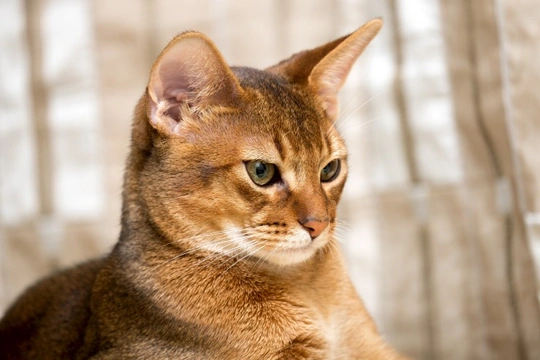
Feline Hereditary Neuroaxonal Dystrophy in Cats
Feline hereditary neuroaxonal dystrophy or FHND in cats describes a group of inherited disorders known as abiotrophies which are known to affect various regions of a cat's brain. When cats suffer from the condition, the tissues in the brain are negatively impacted and sadly, often the reasons remain unknown. Some breeds are more predisposed to feline inherited neuroaxonal dystrophy than others with domestic shorthairs being high on the list of cats affected by the condition.
Symptoms to Watch Out For
Kittens that inherit the disorder typically start to show signs of there being something wrong with them when they are only a few weeks old. The disorder is transmitted through an autosomal recessive gene which attacks neurons found in the brain stem. Symptoms to watch out typically include the following:
- Head nodding which starts when kittens are around five weeks’ old
- Head shaking which starts when kittens are around six weeks’ old
- Uncoordinated movements which starts when kittens are around eight weeks’ old
- Impaired hearing
- Impaired vision
- Stunted growth
The symptoms get progressively worse with time however, it is worth noting that the signs of there being something wrong depends on which part of a kitten's brain is being the most affected. Sadly, the actual causes of why some cats inherit the disorder whereas others do not, remains a mystery and further research is needed to establish why this is.
Breeds Most at Risk
Pure breeds are more at risk than cross breed cats with agouti and similar colour coated cats being highest on the list of cats more predisposed to developing the condition.
Diagnosing the Problem
A vet would need to have a cat's full medical history and ideally their ancestry too. They would also need to know how any symptoms first manifested themselves which all helps when it comes to confirming a diagnosis. The vet would then carry out a full physical examination of a cat suspected of suffering from the condition. The tests a vet would usually recommend carrying out would include the following:
- A complete blood count
- A biochemistry profile
- A urinalysis
Carrying out the above tests would help the vet rule out other reasons why a cat might be displaying symptoms of there being something wrong with them. Sadly, all too often a diagnosis can only be established by carrying out an autopsy, in short, when a cat has succumbed to their symptoms.
Treatment Options
As previously mentioned, more research is needed to understand the disorder and why some cats inherit the condition whereas others don't. As such, there is no specific treatment available for kittens suffering from the condition which means it is often kinder to put them to sleep rather to let them suffer unnecessarily.
Prognosis
The prognosis is never good for kittens with the disorder because feline inherited neuroaxonal dystrophy is a fatal condition caused by an autosomal recessive gene. As such, vets usually recommend putting an affected kitten to sleep rather than let them suffer.



